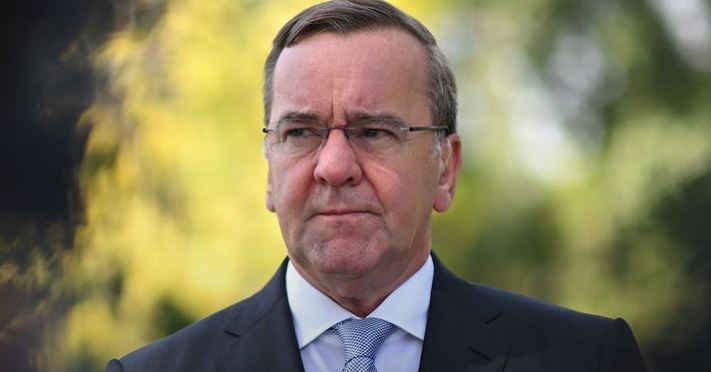German Defense Minister Boris Pistorius has rejected reports of a blockade on a new weapons package for Ukraine, but cabinet approval is still pending, according to Tagesspiegel.
This comes after the Spiegel reported on 9 January that German Chancellor Olaf Scholz has blocked a proposed €3 billion military aid package for Ukraine, which was advocated by Defense Minister Boris Pistorius and Foreign Minister Annalena Baerbock.
A comprehensive package would include three Iris-T air defense batteries, Patriot missiles, ten wheeled howitzers, and artillery ammunition. It would nearly double Germany's current €4 billion commitment to Ukraine for 2025, according to Tagesspiegel.
The package was intended to be approved by the Bundestag's budget committee before the 23 February election.
Pistorius and Baerbock viewed it as a crucial signal of continued support amid escalating Russian advances in eastern Ukraine and uncertainties regarding future US military assistance under President-elect Donald Trump.
SPD parliamentary group leader Rolf Mützenich defended this position, telling RedaktionsNetzwerk Deutschland that committing such significant funds just before the election would be "hardly justifiable legally and politically" and would unfairly constrain the next government.
Deputy Green parliamentary group leader Agnieszka Brugger sharply criticized this stance.
"All democratic factions have made it clear, even during the election campaign, that they see the great urgency for further support of Ukraine," she told Tagesspiegel, arguing that delaying the decision "would cost human lives."
On 19 December, during the European Council summit in Brussels, German Chancellor Olaf Scholz and US President-elect Donald Trump held a phone conversation in which they concurred on the necessity of pursuing a "fair, just and sustainable peace" in Ukraine. Scholz reaffirmed Germany's commitment to supporting Ukraine against Russian aggression for as long as necessary.
In November 2024, Olaf Scholz reiterated his opposition to supplying Ukraine with long-range Taurus missiles, expressing concerns that such weapons could be used for deep strikes into Russian territory, potentially escalating the war with Russia.
Scholz dismissed Finance Minister Christian Lindner, leading to the collapse of Germany's governing coalition. Lindner, leader of the Free Democratic Party (FDP), attributed the crisis to Scholz's refusal to supply Taurus missiles to Ukraine, accusing the Chancellor of obstructing effective military aid against Russia's invasion.
Related:
- Scholz, Trump agree to seek peace in Ukraine in phone call
- No Tauruses for Ukraine, says Scholz
- Scholz caused German government crisis by denying Ukraine Taurus missiles, fired minister says
- Scholz: No immediate NATO invitation for Ukraine during wartime, supplying Tauruses “wrong”
- Biden, Scholz discuss increased Ukraine aid
- German opposition leader Merz proposes conditional Taurus missile delivery to Ukraine
- European Parliament urges member states to allow Ukraine to hit military targets in Russia

